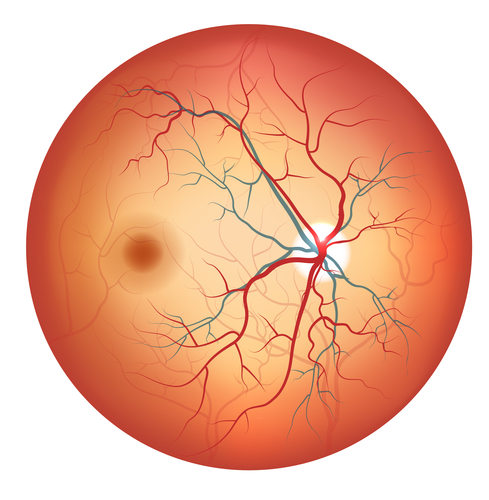Diseases of the Retina
Warren Retina Associates provides comprehensive diagnostic and treatment for a variety of retinal diseases. Dr. Keith Warren is a board certified ophthalmologist and is a retina specialist who has been serving the Kansas City and Overland Park communities for over 25 years.
Who needs a retina specialist? Some common retinal diseases treated include;
- Diabetic Retinopathy
- Macular Degeneration
- Retinal Detachment
- Retinal Tears
- Macular Holes
- Macular Pucker
- Complications of Cataract Surgery
Diabetic Retinopathy
Every diabetic patient is likely to develop some degree of this sight threatening disease at some time in their life. Regardless of sugar control, patients usually will develop some degree of retinopathy.
My goal for my patients with diabetic retinopathy is to diagnose and prevent any vision loss at all. With timely evaluation and treatment, the chance of severe vision during your lifetime falls dramatically.
In coordination with your primary care physician, we recommend that every diabetic patient have a thorough eye examination at least once a year.
Macular Degeneration
There are two types of macular degeneration; dry macular degeneration and wet. Most of our patients have the dry form; slow, but progressive mild to moderate loss of vision. The wet form of macular degeneration can steal your vision faster and more aggressively.
There are no treatments for the dry form of macular degeneration. I am often able to help patients with wet macular degeneration by treating with eye injections of anti-VEGF medications. There are various anti-VEGF medications available known as;
Avastin
Lucentis
Eylea
Retinal Detachment and Retinal Tears
Almost all retinal detachments are caused by a retinal tear. Warning signs of a retinal tear include the sudden onset of flashes or floaters. If caught early, a retinal tear may be treated with laser treatment. This is an “in office” procedure and is highly effective at preventing retinal detachments.
Retinal detachments are potentially blinding. Depending upon the situation, retinal detachments may be fixed as an emergency. There are variety of ways to repair a retinal detachment including a scleral buckle, vitrectomy and use of intraocular gas.
Macular Holes and Macular Pucker
Epiretinal membrane (ERM), macular pucker and cellophane maculopathy are all the same names given to a membrane forming on the surface of the retina causing the retina to “wrinkle.” Symptoms of an ERM include blurry vision and/or distortion. Surgery to remove the epiretinal membrane is your only option, if necessary.
A macular hole is formed by membranes stretching a hole in the central macula. Just like most macular diseases, patients complain of blurry vision and distortion. Surgery is similar to ERM surgery, but also includes the use of intraocular gas at the end of the operation but NO LONGER REQUIRES “face down” head positioning.
Complications of Cataract Surgery
Epiretinal membrane (ERM), macular pucker and cellophane maculopathy are all the same names given to a membrane forming on the surface of the retina causing the retina to “wrinkle.” Symptoms of an ERM include blurry vision and/or distortion. Surgery to remove the epiretinal membrane is your only option, if necessary.
A macular hole is formed by membranes stretching a hole in the central macula. Just like most macular diseases, patients complain of blurry vision and distortion. Surgery is similar to ERM surgery, but also includes the use of intraocular gas at the end of the operation but NO LONGER REQUIRES “face down” head positioning.

